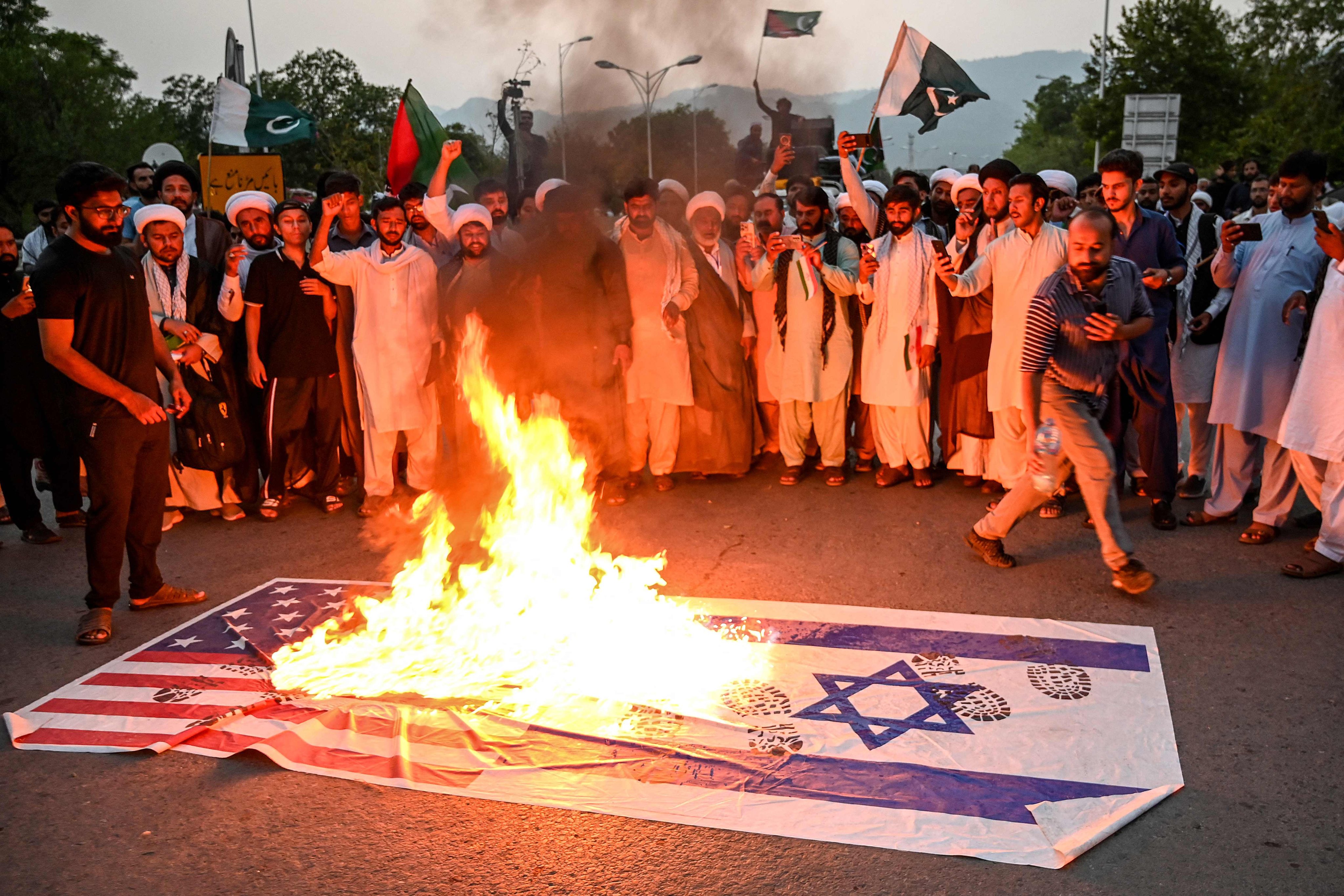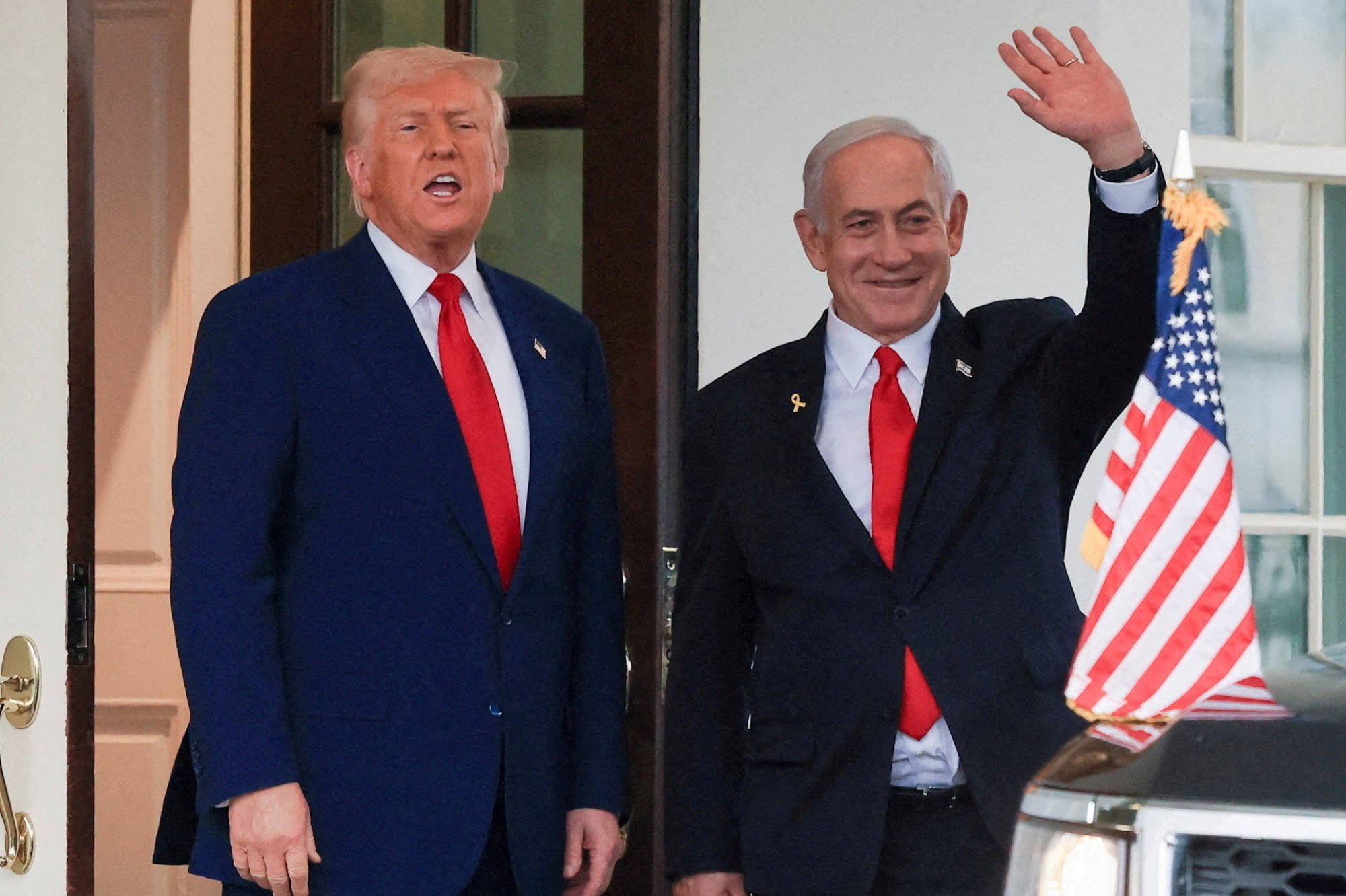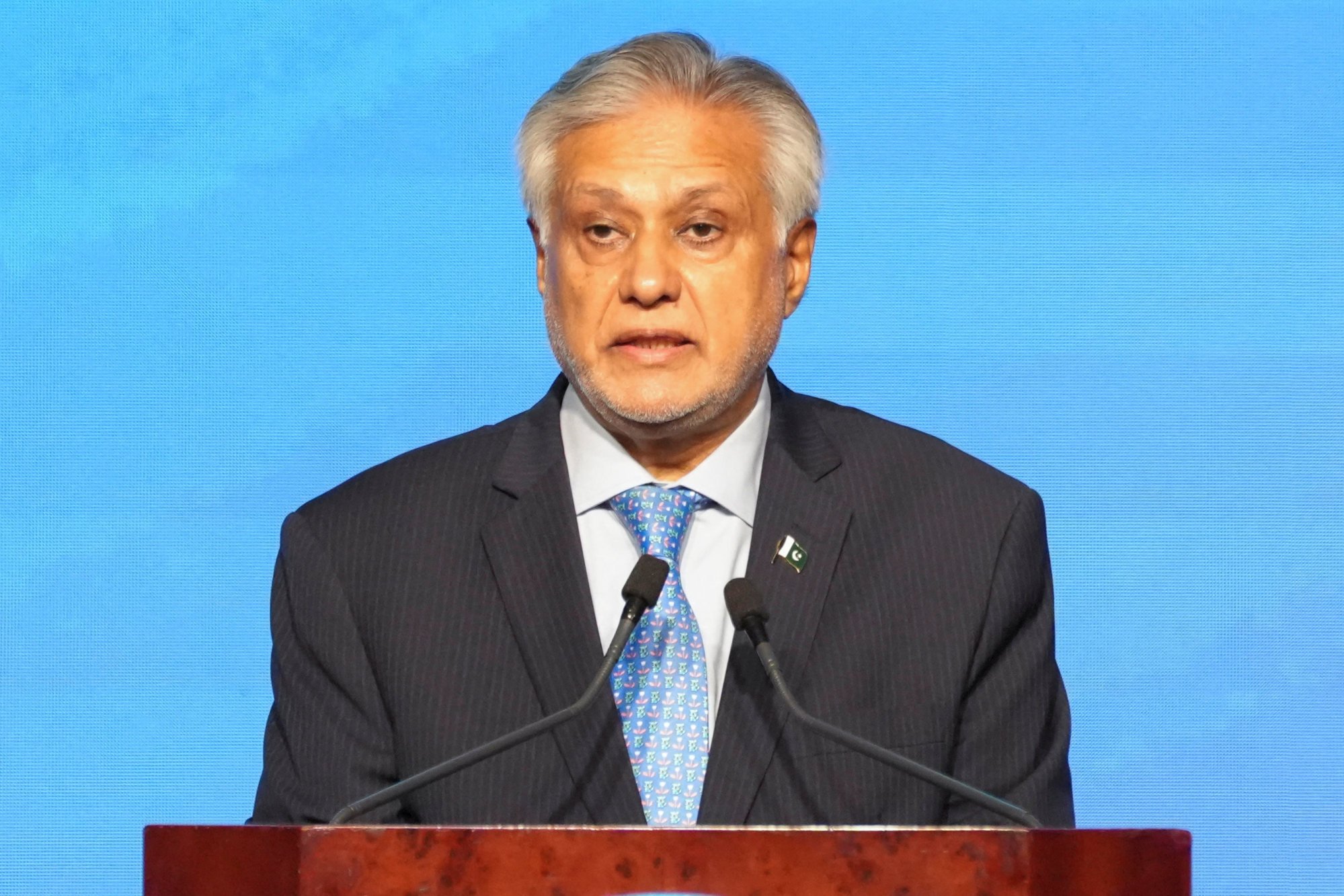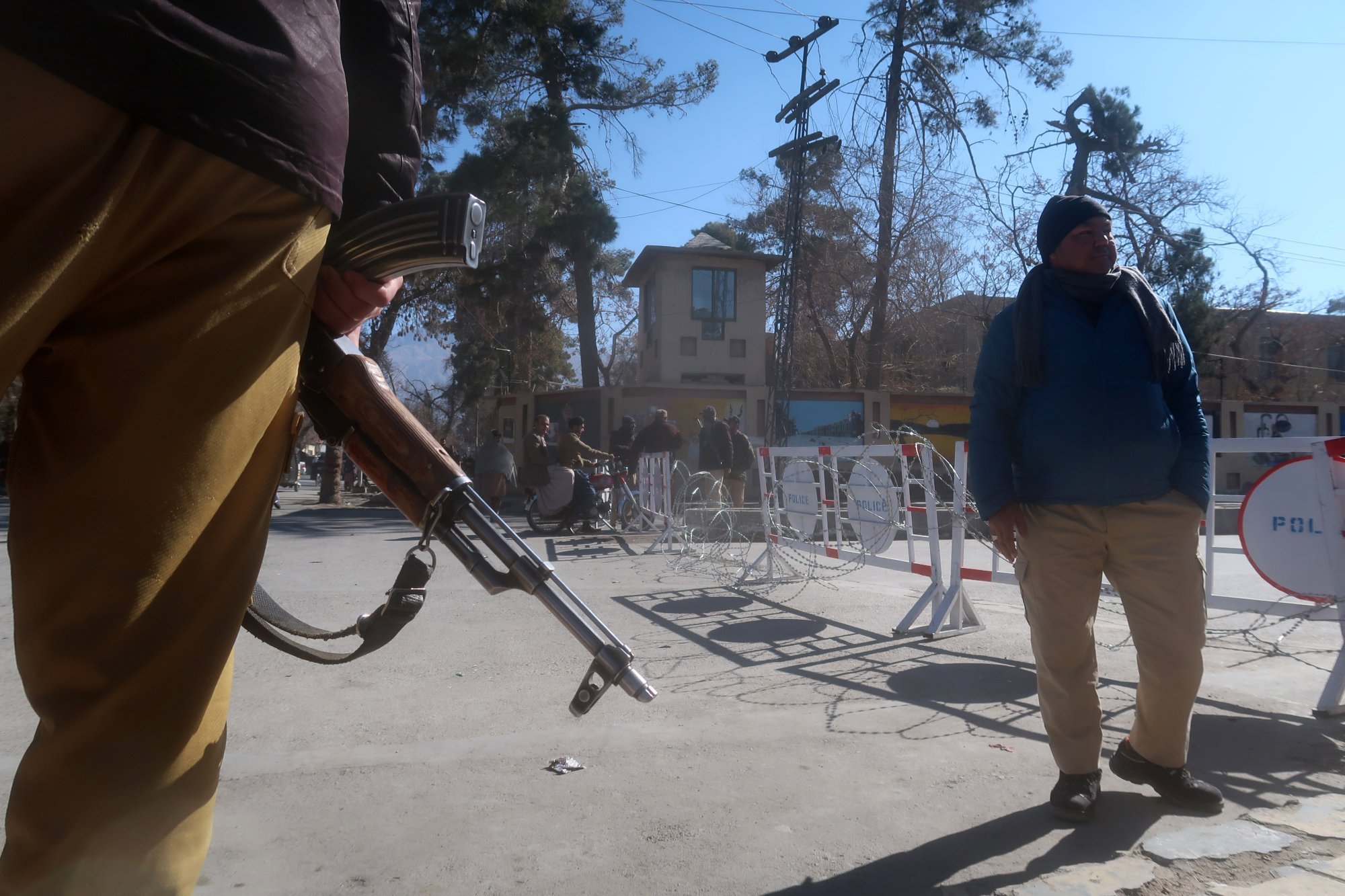Pakistan gets caught in Israel vs Iran disinformation crossfire
The fake news barrage has included clips of Trump, Pakistan’s defence minister and an Iranian official making explosive, false claims

Pakistan, still on high alert after last month’s brief aerial clash with India, now finds itself swept into the digital maelstrom of disinformation accompanying the escalating hostilities between neighbouring Iran and Israel.
Determined to distance itself from the turmoil unfolding just across its southwestern frontier, Islamabad has offered moral support to Tehran by publicly criticising Israel, while simultaneously backing diplomatic efforts to revive a nuclear deal between Iran and the United States.
But the disinformation war has found fertile ground in the country. In the hours after Israel’s strike on Iran on June 13, a flurry of AI-manipulated videos surfaced on social media, each seemingly crafted to paint Pakistan as Iran’s willing accomplice.
One doctored clip appeared to show Pakistan’s Defence Minister Khawaja Mohammad Asif claiming that Islamabad had tipped off Tehran about Israel’s surprise assault – an attack that came just two days before Iranian and US negotiators were set to meet in Oman.
Another falsified video featured Mohsen Rezaei, a former commander-in-chief of Iran’s Revolutionary Guard Corps, asserting that Pakistan had pledged to launch nuclear weapons against Israel if Prime Minister Benjamin Netanyahu’s government ever used them against Iran.

Other spurious recordings supposedly showed US President Donald Trump threatening both Iran and Pakistan, and Netanyahu warning that Pakistan would be “next” after Iran.
While social media verification platforms eventually exposed the videos as fakes, their viral spread was swift and was amplified by mainstream media outlets before the corrections could catch up.
India’s adversarial media quickly seized upon the clips, and Britain’s Daily Mail Online even published a “developing story” centred on the fabricated Rezaei footage.
Soon, Arab news networks joined the frenzy, pressing Pakistani analysts for explanations.

The chaos and confusion ultimately compelled Ishaq Dar, Pakistan’s deputy prime minister and foreign minister, to clarify in an address to parliament on Monday that the videos had been faked, urging citizens not to be whipped up into a warlike fervour.
“This is not child’s play. This is a serious war, like ours with India,” Dar said, attributing the videos to Indian and other unspecified sources.
Pakistan’s nuclear arsenal, he reiterated, remained solely for defensive use against India.
India is estimated to possess 180 nuclear warheads, while Pakistan is believed to have 170, according to the latest annual assessment by the Stockholm International Peace Research Institute (SIPRI), released on Monday.
Israel officially denies having nuclear weapons, but SIPRI and other watchdogs estimate its stockpile at around 90 warheads.
Whispers of history
Pakistani analysts saw parallels with the past in the current misinformation campaign, recalling rumours of secret talks between India and Israel in the early 1980s about a possible joint strike on Pakistan’s nuclear facilities during their construction.
This narrative partly gained traction thanks to Pakistani Prime Minister Shehbaz Sharif’s comments about Israel supplying India with so-called suicide drones used during last month’s stand-off.
However, “this ‘India-Israel nexus’ talk appears to be primarily a domestic [political] issue” in Pakistan, Asfandyar Mir, a senior South Asia fellow at the Stimson Centre think tank in Washington whose research interests include South Asian foreign policies and international relations, told This Week in Asia.
While there was “genuine concern” about Israel’s potential actions in the late 1970s and early 1980s, he said there was now little sign that Pakistan “considers it an active operational concern”.
Fears of “some broader West-led geopolitical play for regime overthrow have decreased” since the US withdrawal from Afghanistan in 2021, Mir said.
He said factors that “may reinforce the drop in strategic anxieties” in Islamabad included Trump’s gratitude for its capturing of an Isis-K terrorist wanted for killing US troops during the withdrawal and Washington’s mediation to end last month’s conflict with India.
Mustafa Hyder, executive director of the Islamabad-based Pakistan-China Institute think tank, said Pakistan had “made it very clear that it is not interested, willing or has any appetite to engage in wars other than the war against terrorism it is already fighting within Pakistan” – referring to its fight against Taliban militants based in Afghanistan, as well as the recent conflict with arch-rival India.
But beyond Pakistan’s desire to remain neutral, other developments in the conflict brewing at its doorstep have heightened anxieties. Netanyahu’s recent calls for Iran’s ethnic minorities to rise up and rebel against the Islamic Republic’s leadership touched a raw nerve in Islamabad, as they include the restive Baloch community – an ethnic group divided among southeast Iran, southern Afghanistan and western Pakistan.
Following closely on the heels of Netanyahu’s remarks, the Middle East Media Research Institute, a think tank in Washington whose president is an Israeli ex-intelligence officer, launched a “Balochistan Studies Project” on June 12 featuring articles penned by separatists outlining the creation of a new state carved from Iran, Afghanistan and Pakistan.

Hyder said this indicated “there is a certain section in Washington that is very close to Israel and India’s shared interests” and views Pakistan, a major Muslim nuclear power, as a “key challenge”.
“The fault line that they have identified for Pakistan is Balochistan,” he added, emphasising that the separatists’ efforts lacked official US support.
Baloch insurgents have waged low-intensity rebellions in Iran and Pakistan for decades, operating from mountainous sanctuaries along the countries’ shared border.
Their attacks have also targeted Chinese interests and nationals in Pakistan’s Balochistan province, including the Arabian Sea port of Gwadar and other Belt and Road Initiative projects, as well as sites in Karachi.
Over the years, cross-border raids by Baloch militants have triggered clashes between Pakistani and Iranian forces, climaxing in January 2024 with unprecedented air strikes on each other’s territory – actions initiated by Tehran against Baloch rebels’ camps.
The Iran-Pakistan relationship is basically only moderately friendly with hardly any real strategic content to itAsfandyar Mir, South Asian relations researcher
Diplomatic ties were soon normalised after both countries agreed to share intelligence on the insurgents and on Isis-K militants who have sought refuge in the border region to evade Afghanistan’s Taliban regime.
“Beyond the rhetoric, the Iran-Pakistan relationship is basically only moderately friendly with hardly any real strategic content to it,” Mir said.
He noted that Pakistan’s government was “taken aback by some of the statements emanating from Tehran and the social media-fuelled misinformation surrounding them”.
At present, it seemed “like a feeble attempt by Iranian elements to drag Pakistan in for their advantage on one hand and others dissatisfied with Pakistan to implicate it”, Mir said, describing the misinformation as “wartime noise that will go away”.
Tensions between Tehran and Islamabad endure, in part, due to Iran’s joint ventures with India to develop Chabahar port and other infrastructure projects near the Pakistani border.
In March 2016, Pakistan announced the arrest of an alleged Chabahar-based Indian spy, Kulbhushan Yadav, after it said he had crossed into Balochistan to work with rebels. India countered that Yadav, a former naval officer turned businessman, had been abducted from Iran.
Following last month’s conflict with India, Islamabad officially labelled Baloch insurgents as “agents of Indian chaos” and ramped up counterterrorism operations in the province.
Pakistan’s strategic anxieties about foreign-fuelled internal threats were “long-standing and not new”, Mir said. However, he added that Islamabad now faced the “more direct role” of Iranian and Taliban safe havens for anti-Pakistan militants, “which are more on the minds of Pakistani leadership”.